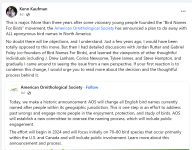If there were to be a candidate for the most arcane avian eponym, the Amazilia Hummingbird would surely be a contender. While there are a number of species named for various figures from myths and legend, Amazili is the only character from a work of pure fiction to have a bird species named for them.
Amazili appears in the 1777 novel Les Incas, ou la destruction de l’empire du Perou by Jean-François Marmontel; essentially an early work of historical fiction set during the Spanish invasion of the Incan Empire several hundred years earlier. An Incan woman on the run from Spanish Conquistors alongside the heroes Orozimbo and Telasco.
Her creator, Marmontel was a noted historian and writer, whose circles crossed with the likes of Voltaire and Madame de Pompadour. Born the son of a tailor, he excelled academically which allowed him to pursue his interest in philosophy. However, he struggled to find success upon moving to Paris and eventually turned to Madame de Pompadour, who provided him with a position as Versailles for a number of years.
Following this he would enter a period of comparative success – he would be appointed Secretary-General of the Académie Française and his publishing of Bélisaire – a fictionalised biography of the Byzantine general Belisarius would come to international acclaim in it’s time, as well as courting controversy as a banned book as it critiqued the ingratitude of those in power.
However, a decade later the publishing of Les Incas would prove far less notable. Like Bélisaire, it is a story underpinned by Marmontel’s political beliefs – in this case critique of fantacism represented by the cruelties of the Spanish invasion of Peru.
He would only live two years after the publishing of the book – the French Revoluton would leave him impoverished and he would pass from illness that same year.
As for Amazili, her name only turns up 35 times in the entire text of Les Incas – she is the sister of Orozimbo, and her presence in the story amounts to fleeing the Spanish, fighting two Conquistadors with her bow before being captured once more, before finally commiting suicide as a preferable end to being the slave of Pizarro. She is portrayed as an “exotic” beauty in her appearances, and while capable with a bow, her arc is ultimately based around well trodden European tropes of the vulnerability of women.
In some ways Les Incas could be percieved as progressive for its time in having anti-colonial themes, but that it would lead to an eponym is frankly odd. It would of course be due to Lesson, who seems to be responsible for many of the more incongruous eponyms that Amazilia Hummingbird exists as a name. But as we look to decolonise eponyms, there are few easier places to start than a name that honours a minor problematic character in a mostly forgotten book by an equally mostly forgotten author.
It is especially frustrating that this is the closest avian eponyms get to honouring indigenous woman, and it is of course the fantasiced creation of a white European man.








